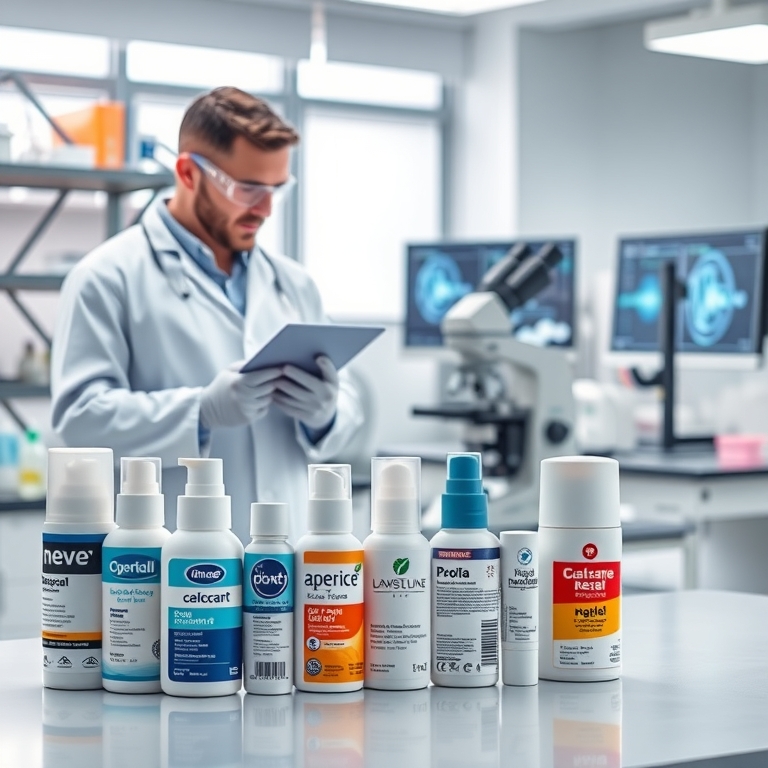In a significant development that underscores the importance of stringent safety standards in consumer products, the U.S. Food and Drug Administration (FDA) has announced a recall of several popular deodorant brands due to the discovery of potentially harmful contaminants. This move, which has sent ripples through both the personal care industry and consumer circles, highlights the critical role of regulatory oversight in ensuring public health and safety. The recall concerns products that have long been staples on store shelves, raising immediate questions about product safety and the measures companies must take to protect consumers.
The FDA’s decision to recall these products follows a series of tests that revealed the presence of potentially hazardous chemicals. While the FDA has not disclosed the specific contaminants found, it is understood that they could pose health risks if used over a prolonged period. This revelation has prompted an immediate response from manufacturers, who are now faced with the daunting task of addressing these safety concerns while managing the reputational fallout. The recall affects a wide range of deodorant products that are widely used by millions of Americans, making it one of the most significant recalls in recent memory.
For consumers, the announcement has sparked a wave of concern, as many begin to question the safety of everyday personal care products. The deodorant market, which is valued at billions of dollars annually, is a vital component of the personal hygiene routines for a significant portion of the population. The recall has not only disrupted consumer confidence but has also prompted a broader conversation about the transparency and safety protocols in the manufacturing of personal care products. In an era where consumers are increasingly conscious of the ingredients in their products, this recall serves as a stark reminder of the need for vigilance and transparency in the industry.
The affected companies, some of which are household names, have responded by initiating their own investigations and cooperating fully with the FDA. These companies are now tasked with reviewing their supply chains, manufacturing processes, and testing protocols to identify the source of the contamination and prevent future occurrences. In a bid to restore consumer trust, several manufacturers have pledged to enhance their quality control measures and increase transparency regarding their product formulations and safety testing.
This recall also places a spotlight on the regulatory processes that govern the personal care industry. The FDA, which is responsible for ensuring the safety of food, drugs, and cosmetics, has been criticized in the past for its oversight of the cosmetics industry, where regulations are less stringent compared to those governing food and pharmaceuticals. This incident may prompt a reevaluation of existing regulations and potentially lead to calls for more rigorous safety standards and testing requirements for personal care products.
For the business community, this situation provides a cautionary tale about the importance of corporate responsibility and the potential risks associated with inadequate safety measures. The financial implications for the affected companies could be significant, with potential losses not only from the recall itself but also from potential legal actions and a decline in consumer trust. Investors are likely to scrutinize how these companies respond to the crisis, with a keen eye on their commitment to safety, transparency, and corporate accountability.
In the broader context, this recall may influence the personal care industry as a whole, prompting other companies to proactively review their safety protocols to avoid similar situations. The incident highlights the critical need for robust quality assurance processes and the importance of maintaining a proactive approach to product safety. Companies that prioritize these elements are likely to fare better in maintaining consumer trust and safeguarding their brand reputation in the face of such challenges.
As the situation unfolds, consumers are advised to check their deodorant products against the list of recalled items provided by the FDA. Those who have purchased affected products are encouraged to discontinue use and follow the instructions provided by the manufacturers or retailers regarding returns and refunds. In the meantime, the FDA continues to monitor the situation closely, working with companies to ensure that all necessary steps are taken to protect public health.
The recall of deodorant brands over potentially harmful contaminants serves as a crucial reminder of the responsibilities that manufacturers bear in safeguarding consumer health. It underscores the essential role of regulatory bodies like the FDA in enforcing safety standards and the need for continuous vigilance in the face of evolving challenges in the personal care industry. As the affected companies work to resolve this issue and restore consumer trust, the incident offers valuable lessons for the entire industry on the importance of prioritizing safety, transparency, and accountability in all aspects of product development and manufacturing.

Leave a Reply